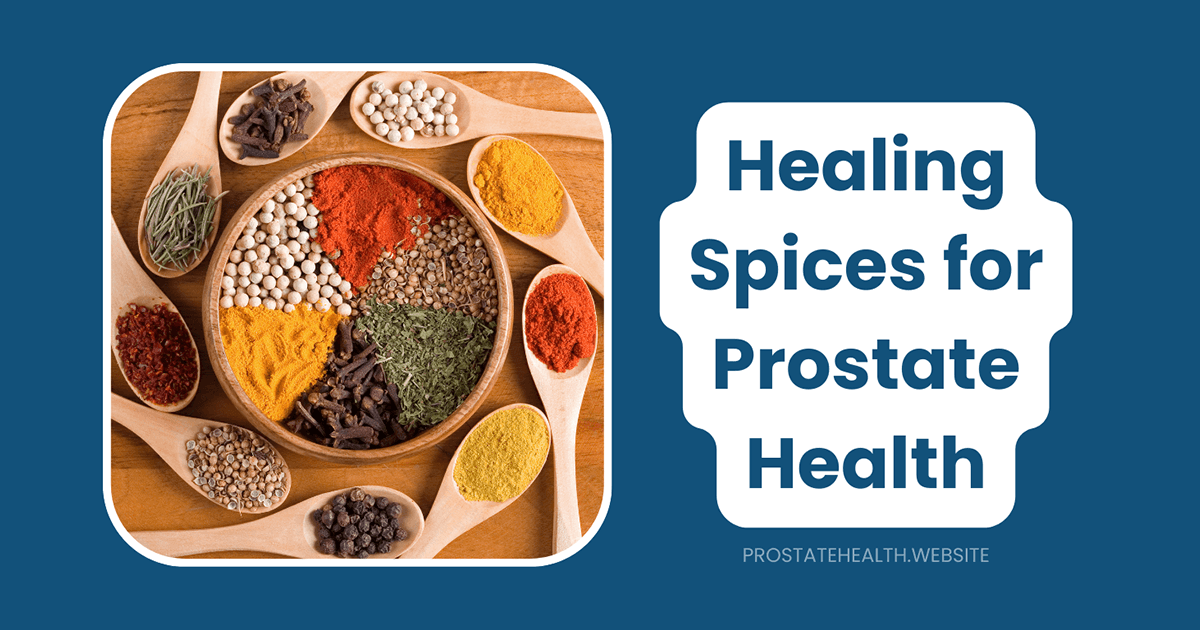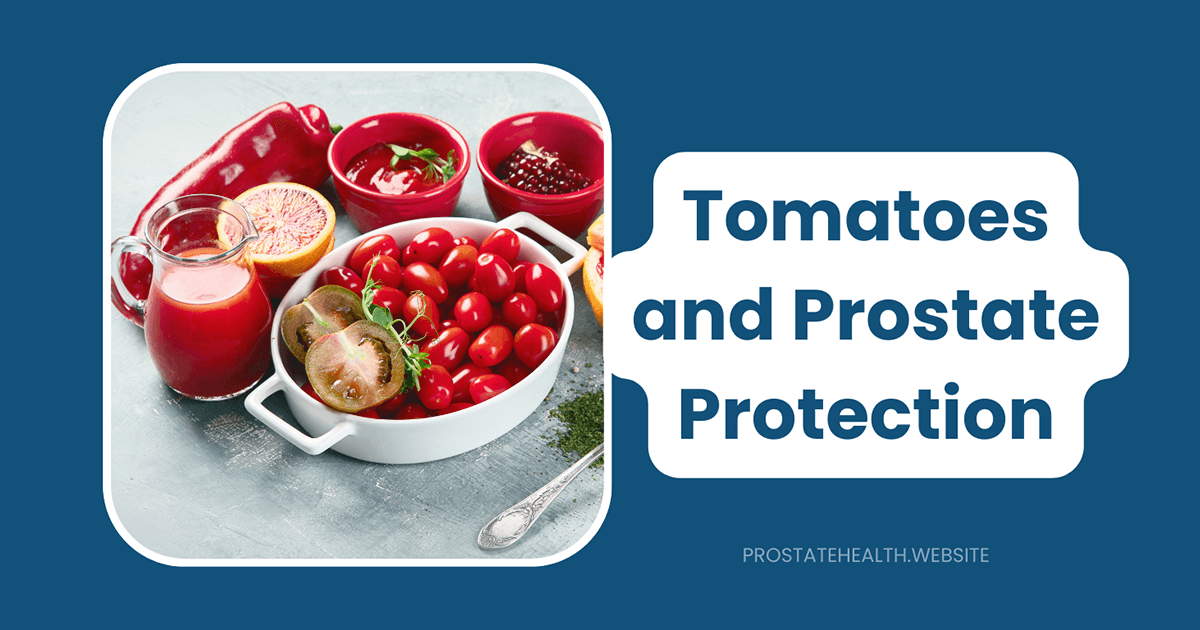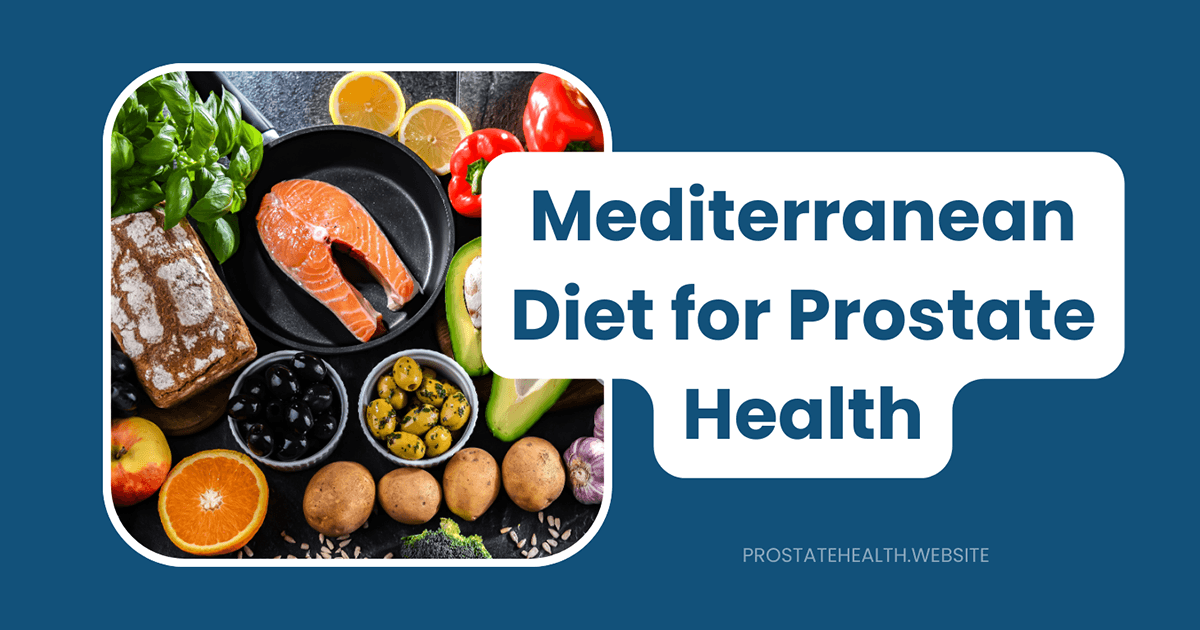Spices and Herbs That May Benefit Prostate Health

When David, a 62-year-old retired teacher, received a diagnosis of benign prostatic hyperplasia (BPH), his first instinct was to research natural remedies. “I’ve always believed in the power of food as medicine,” he told me. “I was surprised to learn how many common kitchen spices and herbs might actually help my prostate.”
David’s curiosity reflects a growing interest in natural approaches to prostate health. With prostate conditions affecting millions of men – from common issues like BPH to more serious concerns like prostate cancer – many are turning to their spice racks and herb gardens for potential support.
But which herbs and spices actually show promise for prostate health? And what does the science really say about their effectiveness? This comprehensive guide explores the evidence behind nature’s flavor enhancers that may also serve as prostate protectors.
Understanding Prostate Health Challenges
Before diving into specific herbs and spices, it’s helpful to understand the common prostate conditions they might address:
- Benign Prostatic Hyperplasia (BPH): Non-cancerous enlargement of the prostate that can cause urinary symptoms
- Prostatitis: Inflammation of the prostate gland
- Prostate Cancer: Malignant growth in the prostate gland
Each of these conditions may benefit from different natural approaches, though there is often overlap in which herbs and spices show promise.
Top Herbs and Spices for Prostate Health
1. Turmeric: The Golden Anti-Inflammatory
Turmeric, with its vibrant golden color, has been used in traditional medicine for centuries. Its active compound, curcumin, has garnered significant scientific interest for prostate health.
Research Evidence:
- A 2025 study found that curcumin may help lower Prostate Specific Antigen (PSA) levels in men with prostate cancer when taken as a daily supplement of 1440 mg.
- Research indicates that curcumin can restrict several cell-signaling pathways, potentially inhibiting tumor cell production.
- Laboratory studies show that curcumin may stop cancer-associated fibroblasts, which contribute to prostate cancer development.
Dr. Sarah Johnson, oncologist at Memorial Cancer Center, explains: “Curcumin has shown promising anti-inflammatory and antioxidant properties in laboratory studies. While we need more clinical trials, the preliminary evidence suggests it may help support prostate health, particularly in combination with conventional treatments.”
How to Use:
- Add 1/2 to 1 teaspoon of turmeric to soups, stews, and rice dishes
- Make “golden milk” by combining turmeric with warm milk and a pinch of black pepper (which enhances absorption)
- Consider supplements containing 500-1000 mg of curcumin daily, after consulting with your healthcare provider
Precautions:
- High doses may cause digestive discomfort
- May interact with blood thinners and certain medications
- Look for supplements with enhanced bioavailability, as curcumin is poorly absorbed on its own
2. Ginger: Turmeric’s Powerful Cousin
Related to turmeric, ginger contains bioactive compounds called gingerols that have shown promise for prostate health.
Research Evidence:
- A laboratory study published in the British Journal of Nutrition found that whole ginger extract inhibited growth and induced death in prostate cancer cells.
- Animal research showed that daily oral feeding of ginger extract inhibited tumor growth by approximately 56% in mice with prostate cancer.
- Ginger appears to work through multiple mechanisms, including reducing inflammation and oxidative stress.
How to Use:
- Add fresh grated ginger to stir-fries, soups, and smoothies
- Brew ginger tea by steeping sliced fresh ginger in hot water
- Use ground ginger in baking and cooking (1/4 to 1/2 teaspoon per dish)
Precautions:
- May increase bleeding risk when taken with blood thinners
- Can cause heartburn in some individuals
- Moderate consumption (2-4 grams daily) is generally considered safe
3. Saw Palmetto: The Prostate-Specific Herb
While not a common kitchen spice, saw palmetto (Serenoa repens) is one of the most studied herbs for prostate health, particularly for BPH.
Research Evidence:
- Some studies suggest saw palmetto may be as effective as the medication finasteride (Proscar) for treating BPH symptoms, with fewer side effects.
- A 2021 study indicated that saw palmetto may have fewer side effects than tamsulosin (Flomax), particularly regarding ejaculation dysfunction.
- Saw palmetto appears to work by inhibiting 5-alpha-reductase, an enzyme involved in converting testosterone to dihydrotestosterone (DHT), which can stimulate prostate growth.
How to Use:
- Typically taken as a supplement (not used in cooking)
- Standard dosage is 160 mg of liposterolic extract twice daily
- Available as capsules, tablets, liquid extracts, and teas
Precautions:
- May interact with hormone medications and blood thinners
- Could affect PSA test results (inform your doctor if you’re taking it)
- Quality and potency vary among supplements
4. Stinging Nettle: More Than a Garden Weed
Despite its reputation for causing skin irritation when touched, stinging nettle (Urtica dioica) has emerged as a valuable herb for prostate health.
Research Evidence:
- A 2019 review found that nettle root extracts can effectively reduce BPH symptoms.
- Studies indicate that stinging nettle contains compounds with anti-inflammatory and antioxidant properties.
- Often used in combination with saw palmetto, with some research suggesting enhanced effectiveness when used together.
How to Use:
- Available as tea, capsules, tablets, and tinctures
- Typical dosage ranges from 400 to 600 mg daily
- Young nettle leaves can be cooked and eaten like spinach (cooking removes the sting)
Precautions:
- May lower blood sugar levels
- Can interact with blood pressure medications, diuretics, and diabetes drugs
- Raw nettle leaves cause skin irritation; always handle with gloves
5. Green Tea: Polyphenol Powerhouse
While technically not a spice or culinary herb, green tea deserves mention for its potential prostate benefits.
Research Evidence:
- Green tea contains epigallocatechin-3-gallate (EGCG), a potent antioxidant with anti-inflammatory properties.
- A 2022 study suggested that green tea may reduce the development and progression of BPH.
- Research has found that green tea supplements improved BPH symptoms such as urine flow and sexual desire in men with moderate to severe BPH.
How to Use:
- Drink 2-3 cups of green tea daily
- Consider matcha, a concentrated form of green tea
- Green tea extract supplements are available (typically standardized to EGCG content)
Precautions:
- Contains caffeine, which may worsen urinary symptoms in some men
- High doses of green tea extract may affect liver function
- May interact with certain medications, including blood thinners
6. Pygeum: African Cherry Tree Bark
Derived from the bark of the African cherry tree (Prunus africana), pygeum has been used in European medicine for prostate health since the late 1960s.
Research Evidence:
- Studies suggest pygeum may have antioxidant and anti-inflammatory effects on the urogenital system.
- A systematic review found that pygeum provided moderate relief from BPH symptoms compared to placebo.
- May work by reducing inflammation and blocking hormones that stimulate prostate growth.
How to Use:
- Available as capsules, tablets, and extracts
- Typical dosage is 50 to 100 mg twice daily
- Not used as a culinary spice or herb
Precautions:
- Sustainability concerns exist due to overharvesting
- May cause mild digestive upset
- Limited long-term safety data available
7. Garlic: Common Bulb with Uncommon Benefits
This kitchen staple does more than add flavor to your meals—it may also support prostate health.
Research Evidence:
- Garlic contains sulfur compounds that may help protect against prostate cancer.
- Laboratory studies suggest that allicin, a compound in garlic, may inhibit the growth of prostate cancer cells.
- Some population studies have found associations between higher garlic consumption and lower risk of prostate cancer.
How to Use:
- Add 1-2 crushed or minced garlic cloves to meals daily
- Let crushed garlic sit for 10 minutes before cooking to maximize beneficial compounds
- Roast whole garlic bulbs for a milder, sweeter flavor
Precautions:
- May increase bleeding risk when taken with blood thinners
- Can cause breath and body odor
- May cause digestive discomfort in some individuals
8. Cinnamon: Sweet Spice with Potential Benefits
This popular baking spice may offer benefits beyond flavoring your morning oatmeal.
Research Evidence:
- Contains anti-inflammatory compounds that may help reduce prostate inflammation.
- Some laboratory studies suggest cinnamon extracts may inhibit the growth of prostate cancer cells.
- May help regulate blood sugar, which is relevant as diabetes has been linked to increased BPH risk.
How to Use:
- Add 1/2 to 1 teaspoon to oatmeal, coffee, or smoothies
- Use in baking and cooking both sweet and savory dishes
- Ceylon cinnamon is preferred over cassia cinnamon for regular consumption
Precautions:
- Cassia cinnamon (the most common type) contains coumarin, which may be harmful in large amounts
- May interact with diabetes medications and blood thinners
- Can cause allergic reactions in sensitive individuals
9. Cayenne and Other Hot Peppers: Spicing Up Prostate Health
Hot peppers contain capsaicin, the compound responsible for their heat, which may offer prostate benefits.
Research Evidence:
- Laboratory studies suggest capsaicin may induce apoptosis (programmed cell death) in prostate cancer cells.
- Some research indicates that capsaicin may help reduce prostate inflammation.
- Population studies have found associations between consumption of chili peppers and reduced cancer risk.
How to Use:
- Add small amounts of cayenne or other hot peppers to soups, stews, and sauces
- Start with small amounts if you’re not accustomed to spicy foods
- Consider capsaicin supplements if you don’t enjoy spicy foods
Precautions:
- Can cause digestive discomfort and heartburn
- May irritate the urinary tract in some individuals
- Handle hot peppers carefully to avoid eye and skin irritation
10. Rosemary: Aromatic Herb with Antioxidant Power
This fragrant herb contains carnosic acid and rosmarinic acid, compounds with potential prostate benefits.
Research Evidence:
- Laboratory studies suggest rosemary extract may inhibit the growth of prostate cancer cells.
- Contains potent antioxidants that may help reduce oxidative stress and inflammation.
- Some research indicates rosemary may enhance the effectiveness of certain cancer treatments.
How to Use:
- Add fresh or dried rosemary to meats, roasted vegetables, and soups
- Infuse olive oil with rosemary for added flavor and potential health benefits
- Make rosemary tea by steeping fresh sprigs in hot water
Precautions:
- May interact with blood thinners and certain medications
- High doses may affect blood sugar levels
- Medicinal amounts during pregnancy may be unsafe
Practical Ways to Incorporate These Herbs and Spices
Prostate-Friendly Spice Blends
Create your own prostate-supporting spice blends to keep on hand:
Anti-Inflammatory Blend:
- 2 tablespoons ground turmeric
- 1 tablespoon ground ginger
- 1 teaspoon black pepper (enhances turmeric absorption)
- 1 teaspoon cinnamon
- 1/2 teaspoon cayenne (adjust to taste)
Use 1/2 to 1 teaspoon in soups, stews, rice dishes, or smoothies.
Mediterranean Herb Blend:
- 2 tablespoons dried rosemary
- 2 tablespoons dried thyme
- 1 tablespoon dried oregano
- 1 tablespoon garlic powder
- 1 teaspoon black pepper
Use to season meats, vegetables, and olive oil-based dressings.
Daily Prostate-Supporting Beverages
Golden Milk:
- 1 cup milk of choice (dairy or plant-based)
- 1/2 teaspoon turmeric
- 1/4 teaspoon ginger
- Pinch of black pepper
- Optional: cinnamon and honey to taste
Heat gently and drink before bed.
Prostate Health Tea:
- 1 cup hot water
- 1 green tea bag
- 1/4 inch fresh ginger, sliced
- Pinch of cinnamon
- Optional: nettle tea bag (if available)
Steep for 5-7 minutes and enjoy 1-2 cups daily.
Combining Herbs and Spices with Conventional Care
While herbs and spices show promise for supporting prostate health, they should complement, not replace, conventional medical care.
Dr. Michael Chen, urologist at University Medical Center, advises: “I encourage my patients to adopt a healthy diet rich in beneficial herbs and spices. However, it’s crucial to maintain regular check-ups and follow prescribed treatments. Natural approaches work best alongside appropriate medical care, not in place of it.”
When to See a Doctor
Consult a healthcare provider if you experience:
- Difficulty urinating or weak urine flow
- Frequent urination, especially at night
- Blood in urine or semen
- Pain or burning during urination
- Persistent pain in the lower back, hips, or pelvic area
The Research Landscape: What We Know and Don’t Know
While many herbs and spices show promise for prostate health, it’s important to understand the limitations of current research:
- Many studies are conducted in laboratories or on animals, not humans
- Human studies often have small sample sizes or short durations
- Quality and active compounds in herbs and spices can vary significantly
- Individual responses to these natural compounds may differ
That said, incorporating these herbs and spices into your diet is generally safe and may provide benefits beyond prostate health, including overall anti-inflammatory and antioxidant effects.
Real-World Success: A Patient’s Perspective
Remember David from the beginning of our article? Six months after incorporating turmeric, ginger, and saw palmetto into his daily routine (with his doctor’s knowledge), he reported improvement in his BPH symptoms.
“I’m not saying these herbs cured me,” David clarifies. “I still take the medication my doctor prescribed. But I’ve noticed less frequent nighttime urination and better overall comfort since adding these natural elements to my routine. Plus, my meals taste better!”
Conclusion: A Flavorful Approach to Prostate Health
The herbs and spices discussed in this article offer a flavorful way to potentially support prostate health as part of a comprehensive approach that includes:
- Regular medical check-ups and appropriate screening
- A balanced diet rich in fruits, vegetables, and whole grains
- Regular physical activity
- Adequate hydration
- Stress management
By incorporating these aromatic allies into your daily routine, you may not only enhance the flavor of your meals but potentially provide some support for your prostate health as well.
Remember that consistency is key—occasional use is unlikely to provide significant benefits. Instead, aim to incorporate small amounts of these herbs and spices into your daily diet over the long term.
Additional Resources:






